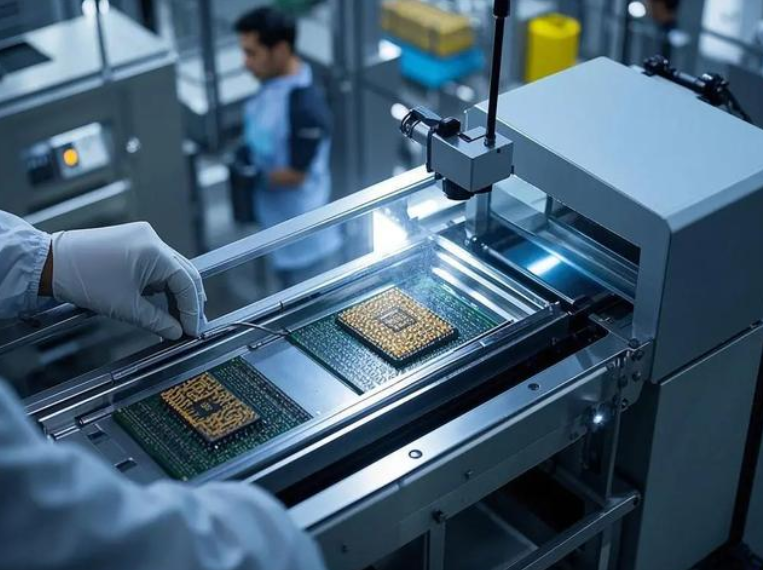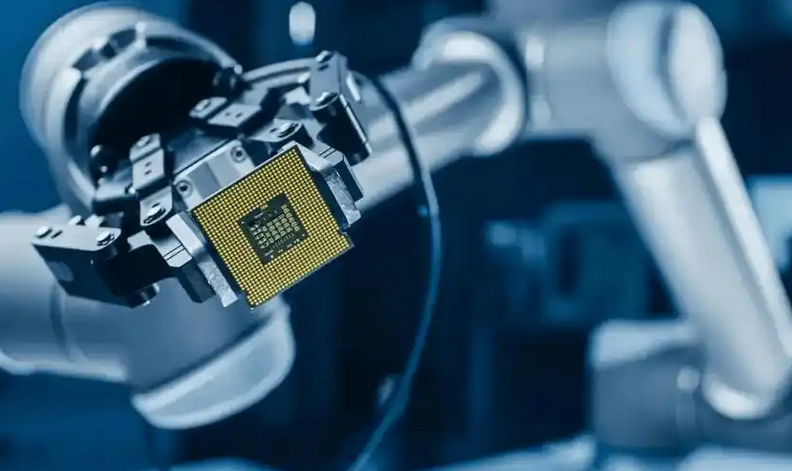There is a piece of news that has truly shaken people: Trump may announce this week an increase in tariffs on imported chips, reportedly ranging from 25% to 100%.From smartphones and computers to cars and servers, which of these does not rely on chips? If these tariffs are really imposed, it won’t be a joke.This matter will have a significant impact on Taiwan. TSMC is the leader in global chip foundry, often referred to as the “Silicon Shield,” meaning it can protect Taiwan.However, if the U.S. really imposes these tariffs, whether this “shield” can withstand the blow is a big question mark. If the tariffs are too high, major U.S. clients like Apple and Qualcomm will see the costs of importing chips from Taiwan rise significantly. Will they not consider other options?They might turn to South Korea’s Samsung, Japanese manufacturers, or simply push to accelerate chip production in mainland China. If that happens, won’t TSMC’s orders just fly away?The Americans are also in a contradiction. On one hand, they cannot do without TSMC’s technology; on the other hand, they are always worried about geopolitical tensions. Therefore, they have been calling for “Made in America,” wanting to relocate chip factories back to their own country.Once this tariff policy is implemented, will it accelerate this process or even provoke some retaliatory actions, further complicating the global chip trade? It’s hard to say.Recently, Taiwanese companies involved in chip design have also held meetings, noting that the previous round of reciprocal tariffs imposed by the U.S. in April seemed to have little impact, with customer orders remaining stable as everyone was just observing.But if this time they really target chips and impose taxes based on where the wafers are produced (waferout), that would be different.Many U.S. chip companies design their chips and then have them produced in Asia, with Taiwan being a major player. If taxes are imposed from the source, won’t the costs of importing these critical components skyrocket?The first to suffer would ironically be the U.S. chip companies themselves. Isn’t it interesting to shoot oneself in the foot?If taxes are calculated from the wafer production location, some production capacity may need to be moved back to the U.S. But it’s not as simple as just moving; the entire supply chain would need to be reshuffled, extending purchasing cycles and potentially delaying transportation, leading to a host of complications.Not only would companies earn less, but can U.S. chip companies still hold their ground in global competition?
If the tariffs are too high, major U.S. clients like Apple and Qualcomm will see the costs of importing chips from Taiwan rise significantly. Will they not consider other options?They might turn to South Korea’s Samsung, Japanese manufacturers, or simply push to accelerate chip production in mainland China. If that happens, won’t TSMC’s orders just fly away?The Americans are also in a contradiction. On one hand, they cannot do without TSMC’s technology; on the other hand, they are always worried about geopolitical tensions. Therefore, they have been calling for “Made in America,” wanting to relocate chip factories back to their own country.Once this tariff policy is implemented, will it accelerate this process or even provoke some retaliatory actions, further complicating the global chip trade? It’s hard to say.Recently, Taiwanese companies involved in chip design have also held meetings, noting that the previous round of reciprocal tariffs imposed by the U.S. in April seemed to have little impact, with customer orders remaining stable as everyone was just observing.But if this time they really target chips and impose taxes based on where the wafers are produced (waferout), that would be different.Many U.S. chip companies design their chips and then have them produced in Asia, with Taiwan being a major player. If taxes are imposed from the source, won’t the costs of importing these critical components skyrocket?The first to suffer would ironically be the U.S. chip companies themselves. Isn’t it interesting to shoot oneself in the foot?If taxes are calculated from the wafer production location, some production capacity may need to be moved back to the U.S. But it’s not as simple as just moving; the entire supply chain would need to be reshuffled, extending purchasing cycles and potentially delaying transportation, leading to a host of complications.Not only would companies earn less, but can U.S. chip companies still hold their ground in global competition? Some have said that semiconductor chips are, after all, an upstream industry with high technical content. Even if tariffs are imposed, they have the ability to pass these costs down to consumers buying phones and computers.But the problem is, an electronic product doesn’t just use one chip. With several types of chips adding to the cost, won’t the prices of phones and computers skyrocket? When consumers see such high prices, who will still buy them?Therefore, Taiwanese semiconductor companies have recently shifted their focus. Instead of just monitoring changes in Trump’s tariff policies, they are now more concerned about how much impact this will have on the end consumer market.If everyone stops buying, no matter how good your chips are, who will you sell them to?With the U.S. constantly stirring things up, the ones who will ultimately suffer are likely the everyday consumers who actually buy and use these products!
Some have said that semiconductor chips are, after all, an upstream industry with high technical content. Even if tariffs are imposed, they have the ability to pass these costs down to consumers buying phones and computers.But the problem is, an electronic product doesn’t just use one chip. With several types of chips adding to the cost, won’t the prices of phones and computers skyrocket? When consumers see such high prices, who will still buy them?Therefore, Taiwanese semiconductor companies have recently shifted their focus. Instead of just monitoring changes in Trump’s tariff policies, they are now more concerned about how much impact this will have on the end consumer market.If everyone stops buying, no matter how good your chips are, who will you sell them to?With the U.S. constantly stirring things up, the ones who will ultimately suffer are likely the everyday consumers who actually buy and use these products!